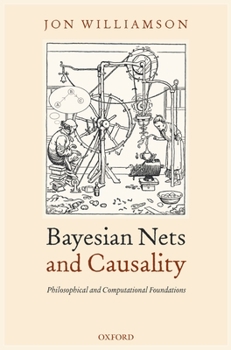Bayesian Nets and Causality: Philosophical and Computational Foundations
Bayesian nets are widely used in artificial intelligence as a calculus for casual reasoning, enabling machines to make predictions, perform diagnoses, take decisions and even to discover casual relationships. But many philosophers have criticized and ultimately rejected the central assumption on which such work is based-the causal Markov Condition. So should Bayesian nets be abandoned? What explains their success in artificial intelligence? This book...
Format:Hardcover
Language:English
ISBN:019853079X
ISBN13:9780198530794
Release Date:February 2005
Publisher:Oxford University Press, USA
Length:252 Pages
Weight:1.27 lbs.
Dimensions:0.8" x 6.5" x 9.5"
Customer Reviews
0 rating





